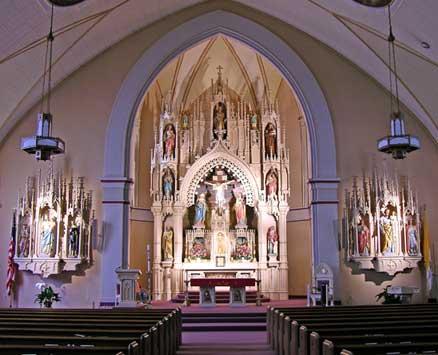Cloyne report points to larger problems

The Cloyne report reveals some shocking truths about the way allagations of abuse were handled, as well as the influnce the church still has over primary schools. The following is the full text of a speech made in the Dail yesterday on this issue by Independent TD Stephen Donnelly.
Ireland in the late 1970s. A young man enters the seminary. The priestly vocation is a challenging one, and accordingly, in 1978, this young man goes for a psychological assessment.
It doesn’t go well. They don’t suggest he’ll make a good priest. He gives indications of “deep sexual repression” and scores very highly on the “psychosis scale”.
Still, no obstacles are put in his path. He is ordained, and joins a parish in north Cork in the mid-1980s. We’ll call him Fr Calder (not his real name).
Almost immediately, people are worried. In 1988 a young man alleges a sexual assault, but doesn’t make a formal complaint. There are reports Fr Calder has been giving alcohol to young adults, and spiking their drinks. There is another report of sexual abuse – but no formal complaint.
Fr Calder moves to another parish in Cork, where there is another “soft” complaint of sexual abuse.
In July 1997, the diocese announces that Fr Calder is to move to a new parish, in north Cork, beside the one where he started his career.
But the locals don’t want him near their children, and they mount a campaign.
The diocese makes some desultory inquires, and asks Fr Calder about allegations, which he denies. The transfer to the new parish goes ahead. Almost immediately, Fr Calder is appointed chairman of the board of management of the local national school.
In the new parish, a mother tells a local GP that, some years previously, she had found Fr Calder in bed with her teenage son. The GP tells the local school principal. The principal is concerned for the safety of the children in her school. But she is unable to bring this to the attention of her board of management – because Calder chairs it.
There had previously been a custom in the school of letting boys leave school, during the day, to serve as altar boys for daily mass. This principal had earlier stopped this, for educational reasons. Now, her new chairman, Fr Calder, asks her to start letting the boys out again. And, what’s more, he wants them to come to him for altar boy training, during school time.
The principal refuses – concerned for their safety.
Is Fr Calder embarrassed, uncomfortable, ashamed, guilty?
No. He threatens her. He says, effectively, he can withhold her salary if she doesn’t do what he says.
Finally, the diocese launches some kind of investigation into Fr Calder. In October 1997 he is sent for assessment to the Granada Institute, where he is uncooperative.
What happens next?
He is not defrocked. He is not stripped of his right to practice as a priest. He returns to ministry – this time in an old folks’ home. He isn’t monitored by the diocese. The superior of the home is not told the full story about his past and the allegations against him. Staff there report that he is downloading pornographic jokes from the internet, seeing young men in his room at night and befriending families with young children and offering to babysit.
This story is at the core of the Cloyne Report. A possibly abusive priest was placed in a position with access to children, and with authority over their school principal.
She objected – he threatened to have her fired.
When the church finally took note of the concerns about the priest, they apparently launched a canon law inquiry – but the Cloyne report implies that documents about this may be deliberately inaccurate.
The priest was moved, but not supervised. Bishop Magee made no attempt to monitor his progress. A report was made to the Vatican – nothing more has been heard of it.
This is the organisation that controls 92% of the primary schools in the country.
That organisation discriminates against children that don’t belong to it from joining its schools – they are routinely placed at the back of the queue.
In those schools – Irish Catholic schools - more time is spent teaching religion than in any other developed country in the world. Irish primary school children spend two and a half times the average amount of time spent on religion in the EU.
There is a problem here. It’s not simply about secularisation, or about multiculturalism. It’s about care for our children, and about quality of management. My children are baptised. I believe in the value of faith formation. But the Catholic Church has proved it is not fit, and not competent, to run our schools. It is time for them to remove themselves, or be removed.
